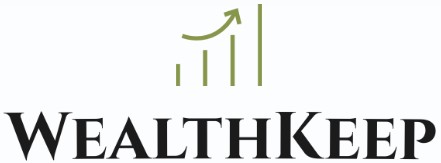Client meetings could not be more tense than the one between the Sterling Cooper ad execs and the honchos from Lucky Strike.
The good old days were over. The FTC was on a rampage, forbidding big tobacco from advertising their product as healthful. It was clear to the Lucky guys that the mass media’s propaganda had manipulated and misled the public into believing their product was linked to…”certain fatal diseases.”
Their competitor could no longer say “More Doctor’s Smoke Camels,” but neither could Lucky Strike, and while that may have leveled the playing field, the principal problem remained: How do we sell more cigarettes than the other guys?
Through thick clouds of smoke, they coughed and complained about their new reality. The problem seemed insurmountable, and it was apparent the ad men walked into this pivotal client meeting without a campaign.
Awkward silence and paper shuffling punctuated the coughing fits. Ambitious and eager to advance, Pete, the inexperienced Sterling account man offered an idea so lame that it caused the men from Lucky to rise from the table and turn their backs on the ad team.
They marched to the door, clearly thinking about hiring a new agency, one that still knew how to sell a pack of smokes.
And then, it happened. A thunderbolt of inspiration. As the tobacco boys were about to leave, Don, the ace creative director resuscitated the conversation, positioning himself to toss a Hail Mary from deep in their end of the field.
The campaign that would infect a million lungs was born.
Don Draper: This is the greatest advertising opportunity since the invention of cereal. We have six identical companies making six identical products. We can say anything we want. How do you make your cigarettes?
Lee Garner, Jr.: I don’t know.
Lee Garner, Sr.: Shame on you. We breed insect-repellent tobacco seeds, plant ’em in the North Carolina sunshine, grow it, cut it, cure it, toast it.
Don: There you go. There you go. Lucky Strike. It’s Toasted.
Lee Garner, Jr.: But everybody else’s tobacco is toasted.
Don: No, everybody else’s tobacco is poisonous. Lucky Strike’s is toasted.
ESG is like cigarettes were in the 1950’s, a cancerous product marketed to have you believe its a healthy and virtuous alternative to dangerous, world-destroying capitalist strategies like, you know, the ones that have continually advanced civilization.
The difference is, there are no current government officials or agencies able or willing to stop the ESG charade, and in fact, many are 100% on board, because the ESG grifters have been empowered to force policy around social issues that the federal government legally cannot.
ESG is about money. Theirs, not yours, to be clear. You will be along for their profitable ride, and you may even make a few bucks, but sound investing isn’t the point. The point of ESG is about using your hard-earned money to advance somebody else’s social agenda. Those somebodies are called “stakeholders”.
ESG takes money from workaday shareholders, and through their transformative magic they transfer it to stakeholders. This is called wealth transfer. This should be called a crime.
Will ESG Reform Capitalism or Destroy it?
You see, capitalism works. It’s always worked. Millions upon millions of workaday American’s lives have been enriched by straight up capitalism. Why? Because they had the guts to put skin in the game. Their skin.
Shareholders have skin in the game. Stakeholders do not.
“Stakeholder” is a made up concept designed to separate you from your money.
Companies exist to benefit their shareholders, people who despite having no guarantees, still took the risk to capitalize the enterprises and industries that have industrialized and improved our planet. Shareholders have earned the right to increase their wealth by participating in risk taking and the capital formation process. Stakeholders have not.
If you have been conned into believing that companies can become more valuable and profitable by adhering to the strict limitations of ESG standards, increase value to the shareholders, and raise their own “social goodness” scores in the bargain, I’ve got this bridge I want you to see.
But Klaus Schwab, the World Economic Forum, Larry Fink, Blackrock, State Street and Vanguard, and too many others, are all working together to advance “the greater good” by forcing ESG on an unsuspecting public. ESG is designed to infiltrate and control your existence, and you will pay a steep price if your own social goodness score remains too low.
ESG is no more about advancing the greater good than giving free cigarettes to ten year olds. It’s not about saving the world from the so-called ravages of climate change, and it exploits issues like race, gender and inclusion, using them as effective manipulations to achieve their real goal: the money.
Social issues, both real and imagined, have been reduced to sales blurbs, and many people will buy the lies in order to escape the shame and name calling if they don’t. You will be well to remember the sticks and stones philosophy.
ESG may possibly be one of the worst and most dangerous ideas to come from the global elites. It has become fashionable in recent decades for elites and other social warriors to label the industries they want to villainize as Big, like Big Oil or Big Auto or Big Meat. You will be well to remember ESG as Big Fraud.
ESG promoters are wolves in sheep’s clothing, and I apologize to the wolves for saying so. They are the bag men who will collect your hard earned money, launder it in their sea of sanctimonious platitudes, throw the stakeholders a few bones and laugh all the way to the banks they control.
ESG is not about having money do good.
ESG is about its hucksters making good money
The Heritage Foundation: Explaining the ESG Pushback
